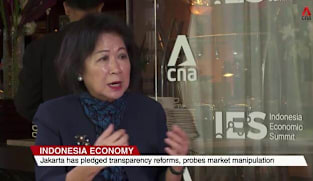Indranee Rajah on Bills to strengthen Singapore’s anti-money laundering regime
Corporate service providers (CSPs) support companies in a range of key activities. They therefore serve as “gatekeepers” against the misuse of companies and are regulated by the Accounting and Corporate Regulatory Authority (ACRA) to ensure that they fulfil their obligations, said Second Minister for Finance Indranee Rajah in Parliament on Tuesday (Jul 2). With that in mind, she laid out details of two Bills aimed at strengthening Singapore’s anti-money laundering regime. The Corporate Service Providers Bill will enhance the regulatory regime for corporate service providers, complemented by the Companies and Limited Liability Partnerships (Miscellaneous Amendments) Bill. Key proposals include requiring all business entities providing corporate services in and from Singapore to register with ACRA as CSPs; requiring all CSPs to comply with requirements for detecting and preventing money laundering, financing of proliferation of weapons of mass destruction and terrorism financing; and introducing fines for non-compliance by registered CSPs and their senior management. Measures are also proposed to tackle the misuse of nominee directorship arrangements. A nominee director is a person appointed as a director of a company but who acts according to another person’s directions. Ms Indranee said this is a legitimate service provided by many CSPs to support overseas-based clients who want to set up a company in Singapore but must fulfil the requirement for an ordinarily resident director. However, such arrangements are vulnerable to abuse and can lead to the conduct of illicit activities. So, individuals will only be allowed to act as nominee directors if this was arranged by a CSP, and CSPs must ensure the individuals are “fit and proper”. Meanwhile, changes in the Companies and Limited Liability Partnerships (Miscellaneous Amendments) Bill would help enhance the transparency of companies and limited liability partnerships - first, by improving the accuracy of information in their registers and second, by further boosting transparency around nominee arrangements.
Corporate service providers (CSPs) support companies in a range of key activities. They therefore serve as “gatekeepers” against the misuse of companies and are regulated by the Accounting and Corporate Regulatory Authority (ACRA) to ensure that they fulfil their obligations, said Second Minister for Finance Indranee Rajah in Parliament on Tuesday (Jul 2). With that in mind, she laid out details of two Bills aimed at strengthening Singapore’s anti-money laundering regime. The Corporate Service Providers Bill will enhance the regulatory regime for corporate service providers, complemented by the Companies and Limited Liability Partnerships (Miscellaneous Amendments) Bill. Key proposals include requiring all business entities providing corporate services in and from Singapore to register with ACRA as CSPs; requiring all CSPs to comply with requirements for detecting and preventing money laundering, financing of proliferation of weapons of mass destruction and terrorism financing; and introducing fines for non-compliance by registered CSPs and their senior management. Measures are also proposed to tackle the misuse of nominee directorship arrangements. A nominee director is a person appointed as a director of a company but who acts according to another person’s directions. Ms Indranee said this is a legitimate service provided by many CSPs to support overseas-based clients who want to set up a company in Singapore but must fulfil the requirement for an ordinarily resident director. However, such arrangements are vulnerable to abuse and can lead to the conduct of illicit activities. So, individuals will only be allowed to act as nominee directors if this was arranged by a CSP, and CSPs must ensure the individuals are “fit and proper”. Meanwhile, changes in the Companies and Limited Liability Partnerships (Miscellaneous Amendments) Bill would help enhance the transparency of companies and limited liability partnerships - first, by improving the accuracy of information in their registers and second, by further boosting transparency around nominee arrangements.



















